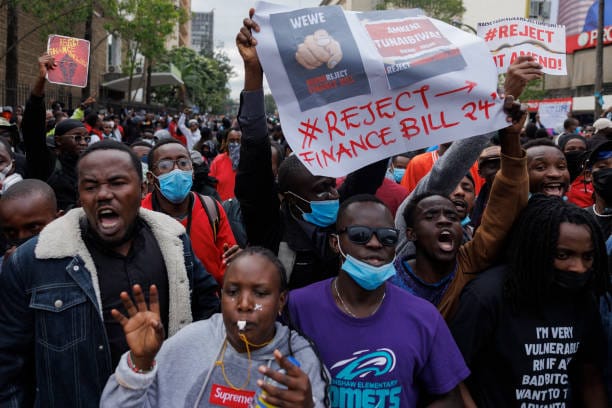In Summary
- Kenya’s President William Ruto has expressed readiness to engage with protesters, particularly the young, who oppose proposed tax increases.
- Organized largely by Gen-Z via social media, the protests have been significant and largely peaceful, though marred by incidents of police using tear gas and reports of two fatalities.
- Ruto’s administration defends the tax hikes as essential for reducing reliance on external borrowing and addressing a fiscal shortfall.
- The proposed increases have sparked widespread discontent amid rising living costs and economic hardships, prompting calls for a national strike on June 25.
DETAILS
Nairobi, Kenya– Kenya’s President William Ruto has acknowledged the need for dialogue following nationwide protests driven by young Kenyans against proposed tax increases. During a church service in Nyahururu, Ruto praised the protesters for their peaceful approach and indicated his willingness to have conversations to address their concerns and work towards building a better nation.
This response comes amid a backdrop of increasing economic pressure and public dissent. The protests, largely coordinated on social media and featuring live streams, have highlighted the growing discontent among the youth regarding Ruto’s economic policies. Despite the largely peaceful nature of these demonstrations, rights campaigners have reported two deaths, intensifying scrutiny of police conduct during these events.
The government, which is grappling with financial constraints, views the tax increases as necessary to boost revenue and lessen the dependence on external loans. However, these measures have not been well received, with many feeling the pinch of rising living costs and limited job opportunities.
In response to the initial wave of protests, the government did roll back several proposed tax hikes but maintained its stance on increasing others. This has led to continued frustration among citizens, culminating in calls for a national strike on June 25, aiming for a “Total Shutdown Kenya.”
Amid these tensions, the Independent Policing Oversight Authority (IPOA) is investigating allegations of police misconduct, including the shooting of a 29-year-old man and the death of a young protester from a tear gas canister. These incidents have raised serious concerns about the use of force in managing the protests.
The economic backdrop is challenging, with Kenya facing a debt crisis exacerbated by a depreciating local currency. The Ruto administration’s attempt to balance fiscal responsibilities with public welfare is proving difficult, as the proposed tax measures, including hikes in fuel prices and export taxes, are expected to further strain the budgets of ordinary Kenyans.
As the situation develops, the dialogue between the government and its citizens will be crucial in shaping Kenya’s approach to resolving its economic challenges while addressing the legitimate grievances of its populace.
